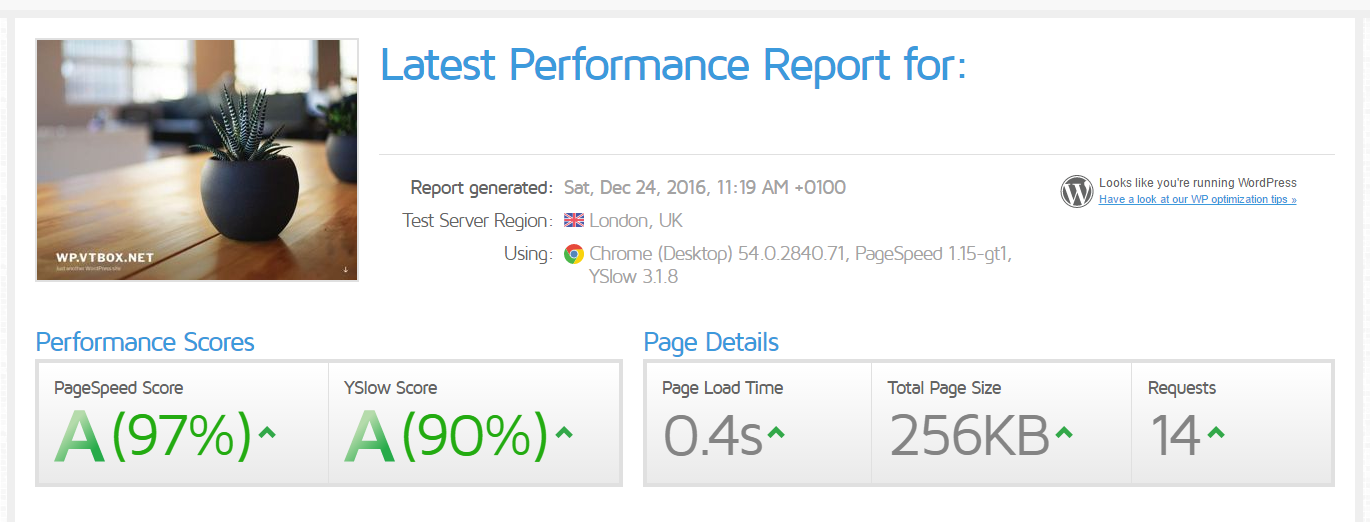What are the major differences between installing WordPress like this “apt-get install wordpress” or like this “ee site create example.com --wp”?
EasyEngine use Nginx and provide the ability to use advanced caching system, SSL and use all the good practices to make WordPress running fast and secured.
So you’re saying, basically, the difference is some automated plugin installs and NginX instead of Apache?
Not only some automated plugins installs. EasyEngine setup a fully optimized stack for WordPress with Nginx - php7 - Mariadb - caching system.
Exactly.
Being able to run a WP with full page cache using REDIS at a single command is priceless.
Guys, I am not looking for the marketing hype. I am looking for the technical answer to the question.
Nobody is talking about marketing here.
But since you are not satisfied with our responses than I think we should refund all the money you paid to us for our (useless) help. Do you agree?
Agreed. Maybe I should send you a bill for my time reading your pointless waffle. Then maybe next time you will think twice about just flapping your gums when you don’t know the answer.
Obviously you need to work both on your attitude and improve your knowledge so you can understand what these guys are talking about and be thankful for their time and help.
QloudPress you got the right answers to your questions. This isn’t Warrior Forum… No one is trying to sell you anything.
They gave you a technical answer. If you didn’t like it, maybe tell us what you want to hear, and maybe someone can then repeat it back to you.
EasyEngine provides a turnkey, single command install of a WordPress price, and simplifies automated installation of features, like REDIS or LetsEncrypt, which makes it an indispensable tool, imo
Jeez, you guys are worse than a bunch Apple fan boyz.
Did you get your ‘technical’ answer, or are you just trolling?
No not really. I wondered if there was anyone in here with the technical chops to describe the differences physically and programmatically, but all I got so far is simple one-liner responses with stuff anyone can read on Git or the easyengine website. If I had wanted that I could read that for myself. What I wanted was a serious analytical answer by somebody who actually knows what they are talking about.
Fair point.
Since your question relates purely to the --wp flag, the answer to your original question would be: “None”
Thank you.
Even with the --wp flag, there are several reasons to choose easyengine, at first EE set automatically all the performances and security settings for wordpress in the nginx configuration :
# Basic locations files
location = /favicon.ico {
access_log off;
log_not_found off;
expires max;
}
location = /robots.txt {
# Some WordPress plugin gererate robots.txt file
# Refer #340 issue
try_files $uri $uri/ /index.php?$args;
access_log off;
log_not_found off;
}
# Cache static files
location ~* \.(ogg|ogv|svg|svgz|eot|otf|woff|mp4|ttf|css|rss|atom|js|jpg|jpeg|gif|png|ico|zip|tgz|gz|rar|bz2|doc|xls|exe|ppt|tar|mid|midi|wav|bmp|rtf|swf)$ {
add_header "Access-Control-Allow-Origin" "*";
access_log off;
log_not_found off;
expires max;
}
# Security settings for better privacy
# Deny hidden files
location ~ /\.well-known {
allow all;
}
location ~ /\. {
deny all;
access_log off;
log_not_found off;
}
# Deny backup extensions & log files
location ~* ^.+\.(bak|log|old|orig|original|php#|php~|php_bak|save|swo|swp|sql)$ {
deny all;
access_log off;
log_not_found off;
}
# Return 403 forbidden for readme.(txt|html) or license.(txt|html) or example.(txt|html)
if ($uri ~* "^.+(readme|license|example)\.(txt|html)$") {
return 403;
}
# Limit access to avoid brute force attack
location = /wp-login.php {
limit_req zone=one burst=1 nodelay;
include fastcgi_params;
fastcgi_pass php;
}
# Disable wp-config.txt
location = /wp-config.txt {
deny all;
access_log off;
log_not_found off;
}
# Disallow php in upload folder
location /wp-content/uploads/ {
location ~ \.php$ {
#Prevent Direct Access Of PHP Files From Web Browsers
deny all;
}
}
# Yoast sitemap
location ~ ([^/]*)sitemap(.*)\.x(m|s)l$ {
rewrite ^/sitemap\.xml$ /sitemap_index.xml permanent;
rewrite ^/([a-z]+)?-?sitemap\.xsl$ /index.php?xsl=$1 last;
# Rules for yoast sitemap with wp|wpsubdir|wpsubdomain
rewrite ^.*/sitemap_index\.xml$ /index.php?sitemap=1 last;
rewrite ^.*/([^/]+?)-sitemap([0-9]+)?\.xml$ /index.php?sitemap=$1&sitemap_n=$2 last;
# Following lines are options. Needed for WordPress seo addons
rewrite ^/news_sitemap\.xml$ /index.php?sitemap=wpseo_news last;
rewrite ^/locations\.kml$ /index.php?sitemap=wpseo_local_kml last;
rewrite ^/geo_sitemap\.xml$ /index.php?sitemap=wpseo_local last;
rewrite ^/video-sitemap\.xsl$ /index.php?xsl=video last;
access_log off;
}
When I compare my own config file in /etc/nginx/nginx.conf they look VERY different. I don’t see all that you are showing in yours and I also see things which are not in yours. I assume the latter is because these sections are being added by the plugins/scripts themselves, but the former is confusing. Also, as I have several sites on this server, they all must be using the same basic config file, plus anything written in /www/domain/conf/nginx/ and /etc/nginx/sites-enabled/ but there only appears to be an ssl.conf file the domain conf, in each case, and a little house keeping stuff in the /sites-available/ so I am left wondering, is the .conf file you have pasted here entirely hand written from your personal knowledge and expertise?
When you use “ee site create yourdomain.com --wp”, it will create the vhost file /etc/nginx/sites-available/yourdomain.com.conf. In this file you can see
include common/wpcommon.conf;
include common/locations.conf;
All the nginx settings are stored in /etc/nginx/common, and included in your vhost configuration, depending on the flag used.
Aha. Thank you.
Any idea why it includes config for the Yoast SEO plugin which I never would use?

